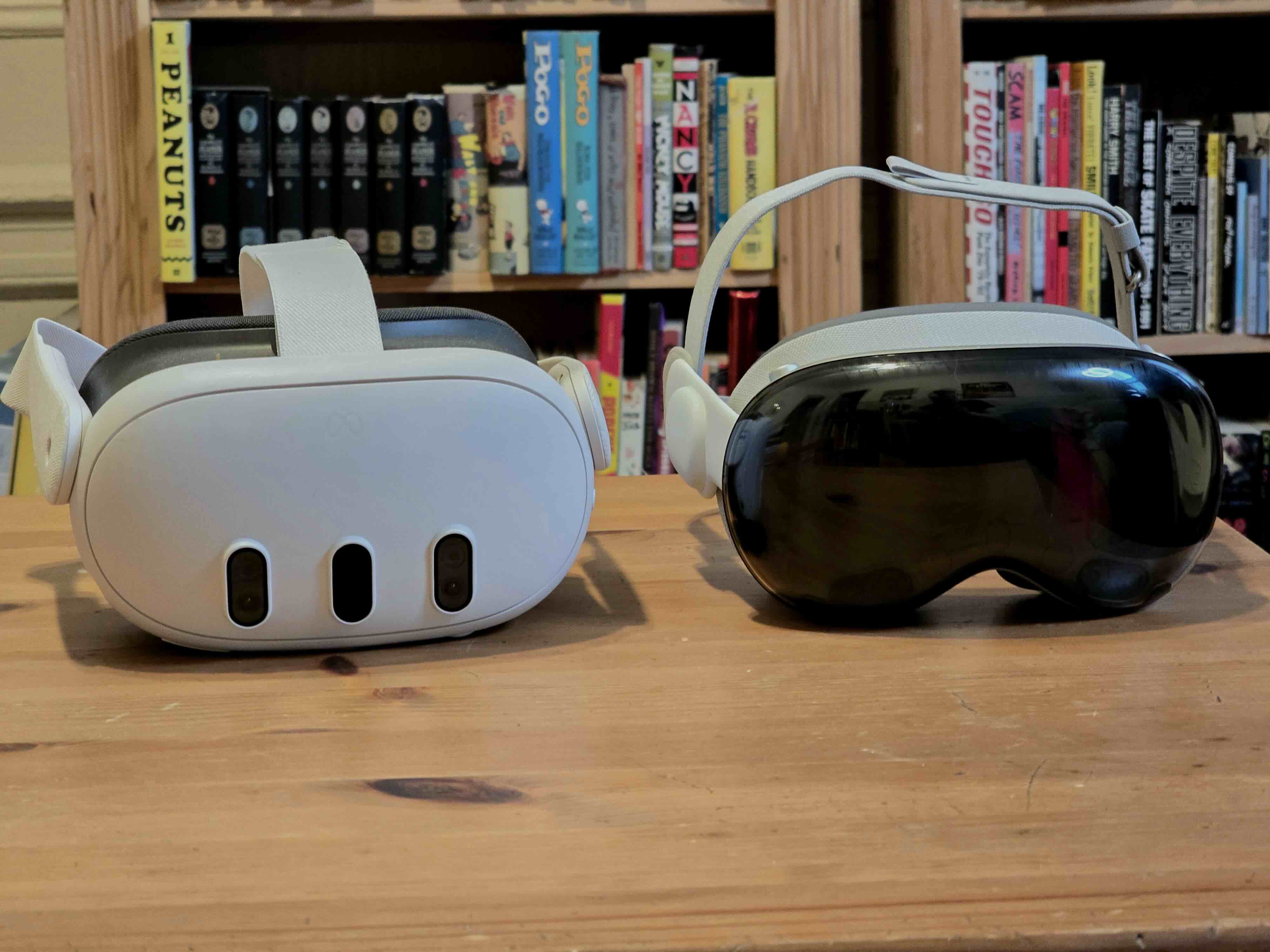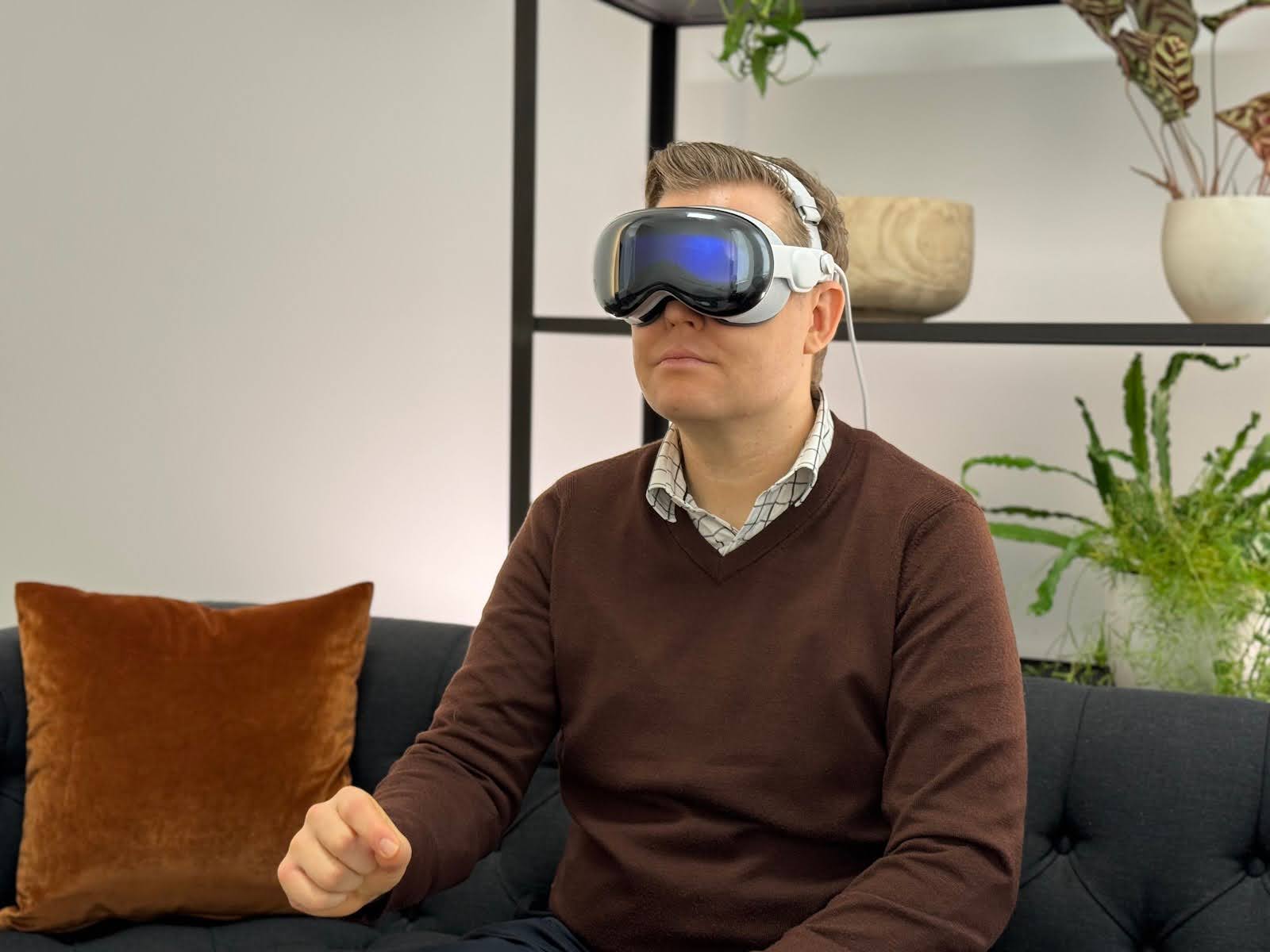
Ten years later, Facebook’s Oculus acquisition hasn’t changed the world as expected
every year, time The magazine has released a list of the 200 best inventions of the last 12 months. Frankly, I don't know how editors do it. The dirty secret of this work is that true, game-changing inventions rarely land on your desk. In fact, if you average one per year you are exceptionally lucky.
Oculus' Rift prototype felt like a device when it first crossed my radar more than a decade ago. More than anything, the system resembled a hastily put-on duct-taped ski mask. It was a remarkable presentation, in retrospect – a very rare glimpse of a courageous entrepreneurial technological spirit. It conjures up romantic images of homebrew computer club nerds piecing together circuit boards in a South Bay garage.
It's now been a decade since Meta (née Facebook) announced plans to acquire the startup for $2 billion. A decade after the deal was announced, it's safe to say that VR headsets haven't changed the world we live in. But there's always a less-discussed middle ground between transforming the human condition and becoming a disgusting dumpster fire of failure. So, where does the Facebook/Oculus deal stand by April 2024?
Mark Zuckerberg wrote at the time, “Immersive gaming will be the first, and Oculus already has big plans here that won't change and we expect to accelerate.” “After games, we're going to make Oculus a platform for many other experiences. Imagine enjoying a courtside seat at a game, studying in a classroom with students and teachers from around the world, or consulting with a doctor face-to-face – all from the comfort of your own home.
Image Credit: David Fitzgerald/Sportsfile/Getty Images
The Facebook founder referred to the Oculus Rift as a “new communications platform”, comparing it to computers, the Internet, and smartphones that preceded it. He suggested that the “science fiction dream” is now a reality – one that Facebook has suddenly taken over. It's hard to overstate how transformative Zuckerberg believed the technology was. After all, it was the gateway to the Metaverse.
Should anyone doubt the company's commitment to the concept, in late 2021, it rebranded itself as “Meta”, killing off the Oculus brand that same afternoon. Of course, social media platforms won't dominate online discussion forever. They will eventually pave the way for something entirely new. except that despite $500 billion rebrand, Zuckerberg and company never did a particularly good job of defining the metaverse. He just emphasized that this is an exciting thing that you should be excited about.

Image Credit: Facebook
I suspect that if you did a blind survey, most people who are familiar with the word meta would describe Second Life, the virtual world that is by now on its fifth or sixth life. Mark Zuckerberg is probably as guilty as anyone of perpetuating that notion, happily doing his best to make the company's Horizon Worlds platform synonymous with the concept of the metaverse. Remember how big a deal it was when its incarnations finally got legs?
So where are we now? Obviously, it's complicated. From a purely financial perspective (the only language spoken by shareholders), things are bleak. Between the end of 2020 and the first quarter of 2024, the company's Metaverse division lost $42 billion. That's about 21 times the price paid for Oculus, not adjusting for inflation. That's a little more than one-quarter more than Zuckerberg makes (not adjusted for inflation — i.e., BJJ-related bulking).
Why is Meta wasting so much money? The simple and blatant answer is because it can. The corporation generated revenues of $134 billion and net income of $39.1 billion last year. That doesn't mean splitting $42 billion over four years doesn't have an impact on its bottom line. But Facebook believes it is playing the long game here.

Image Credit: brian heater
It is widely believed that meta Sells its Quest headset at a loss, This is despite the fact that the company has the best scale of manufacturing in the industry. It doesn't take an MBA to understand that this is a terrible short-term strategy, but again, Meta believes it is playing the long game. The end game is to get enough of these devices into people's hands so that they can be adopted, promoted by word of mouth, and made developer content available to a large number of people. If you can't do this while making a profit, you have to spend money to make money, right?
It remains a big bet. However, how long the company is willing to play the game here will largely depend on how much patience Meta's shareholders have. If it can truly saturate the market and corner content, it will be better positioned to capitalize on the hypothetical exponential growth of mixed reality.
It has already eliminated competition from the market and generally taken the air out of the room. As an HTC Vive executive told me at MWC in February, “I think the meta has adjusted the market's perception of the value of this technology.” Other companies can't compete on price and content in the customer segment, so the smartest people in the group have moved to the enterprise side, where customers have deeper pockets.
If you judge the company's journey by how much of the VR headset market it controls, it has been a wild and unprecedented success. According to IDC, Meta had 50.2% share By second quarter of 2023. Of course, we're not talking about smartphone figures here. By early 2023, Meta was projected to sell 20 million headsets. At the end of the year, the Quest 2 was still outselling the Quest 3. Part of the meta thesis has absolutely worked: people are looking for an affordable on-ramp to technology.

Image Credit: brian heater
When Apple announced Vision Pro at WWDC 2024, I was flooded with unsolicited comments from VR headset makers saying they viewed the iPhone maker's headsets as validation for the space. You can cynically (and correctly) point out that everyone says some version of this when Apple enters their arena, and not many of them make it out the other side in one piece.
But I do agree that Apple getting into the ring is a validation after decades of failed VR efforts. Exactly the same is the case with Meta. Zuckerberg happily used the opportunity to point out that his headsets (1) are significantly less expensive and (2) they don't require an external battery. The meta also made big gains in terms of VR-specific content. Naturally, Zuckerberg also emphasized that his product was much better despite the much lower price.
“It seems like there are a lot of people who have assumed that the Vision Pro will be higher quality because it's Apple and it costs $3,000 more,” he said in February, “but honestly, I'm very surprised.” That the Quest is so much better for most of the things people use these headsets for, even with that price difference.
Sorry, ZUK, the Vision Pro is a more impressive piece of technology. Whether that's $3,000 more impressive is a different conversation. What I can tell you right now is that the pricing difference puts these products in different categories. Apple is targeting business customers at that price point, while Meta is far more committed to democratizing access, again by losing money on a per-unit basis.
It's still early days for Vision Pro – and, indeed, mixed reality in general. If it ever becomes truly ubiquitous, it will be the result of countless difficult struggles. As we mark a decade since the Oculus acquisition, I find myself returning to Zuckerberg's comment above: “Imagine enjoying a courtside seat at a game, studying in a classroom of students and teachers from around the world Or consult a doctor face-to-face.” -Face- Just by wearing glasses in your house.
Rereading it from the vantage point of 2024, I think he was right about the content, but not necessarily about the delivery mechanism. The past four years have dramatically impacted how we interact with each other, the world, and day-to-day activities. The pandemic tarnished many virtual activities. But for now, no headset is required.



